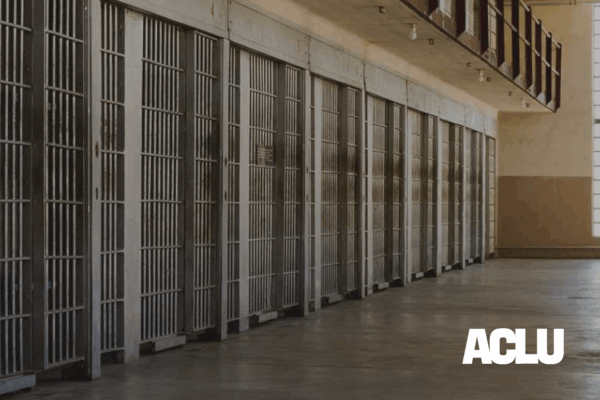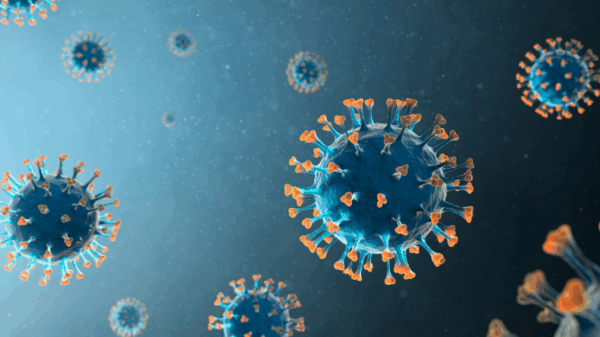As COVID-19 continues to spread within North Dakota communities, we commend the Cass County Jail for its plans to put low-risk offenders on monitored and supervised release programs instead of holding them in jail and encourages counties throughout the state to immediately do the same.
People in jail are highly vulnerable to outbreaks of contagious illnesses like the coronavirus. Once a contagious illness enters, conditions in correctional facilities are highly conducive to it spreading. People in prisons and jails live in close proximity to each other. Many are housed in large dormitories, sharing the same space. Even where people are housed in cells, the ventilation is often inadequate. People who are incarcerated are also often denied adequate soap and cleaning supplies, making infection control nearly impossible.
To limit outbreaks of COVID-19, correctional officials at jails throughout the state must develop plans quickly, similar to what Cass County is doing, to ensure the safety of incarcerated people, medical staff, correctional officers and the public writ large.
We know that confining people in close quarters increases the risk of infection, yet right now hundreds of North Dakotans are incarcerated in our state’s jails based on the mere accusation of a crime and an inability to pay bail. While there are examples of people who have allegedly committed crimes who are a true threat to public safety and require incarceration in jail while waiting trial, the vast majority are nonviolent offenders who could easily be released, monitored and supervised. This would not only reduce the risk of a COVID-19 outbreak among this vulnerable sector of our population, but it would also address concerns of it spreading back into our communities.
We sent out a letter today to Gov. Doug Burgum, the North Dakota Department of Corrections, and Rehabilitation and the North Dakota Sheriffs & Deputies Association about the need to make sure officials are doing everything they can to reduce the spread of COVID-19 in North Dakota’s correctional facilities.
Public health experts recognize that there is a heightened risk of infection for people who are involved in the criminal legal system. From policing, prosecution and pretrial hearings, to sentencing, confinement, and release, every aspect of the system must come under intense scrutiny for how it responds to this once-in-a-lifetime national public health crisis.
In the letter, the ACLU of North Dakota is calling on:
- Gov. Burgum to grant commutations to anyone identified by the CDC as particularly vulnerable whose sentence would end in the next two years, to anyone whose sentence would end in the next year and to anyone currently being held on a technical (crimeless) supervision violation.
- Police to stop arresting people for minor offenses and in other circumstances issue citations or desk-tickets in lieu of arrest so that people can return home, balancing the need for arrest with the overwhelming public safety concerns presented by coronavirus.
- Prosecutors to avoid cash bail requests and move for release in all but the very few cases where pretrial detention is absolutely the least restrictive means necessary to ensure a person’s return to court. They should also institute a review-and-release protocol in cases which bail was already sought in the past 30 days and the person is currently detained.
- Judges to allow anyone with an open criminal case and upcoming hearing the chance to voluntarily waive that hearing or conduct that hearing via telephone or video conference.
- Sheriffs to ensure that facilities are as empty, safe, and clean as possible and that hygiene products are free and readily available to incarcerated people and staff.
- Probation and Parole Agents and Parole Boards to expedite and expand release opportunities for incarcerated people, reducing the population in prisons as recommended by health experts. Boards should institute a presumption of release for all people who have a parole hearing scheduled in the next two years.
Public health experts and groups such as Dr. Gregg Gonsalves, doctors working in New York City Hospitals, Dr. Marc Stern, Dr. Oluwadamilola T. Oladeru and Adam Beckman, Dr. Anne Spaulding, Homer Venters, and Josiah Rich have all clearly stated that preventing the harm inflicted by SARS-CoV-2 and COVID-19 is immensely more difficult for people involved in the criminal legal system. By following the recommendations outlined in the ACLU of North Dakota’s letter, however, state and local officials can create a culture in which transparency, safety and the health of all people is the paramount concern.


